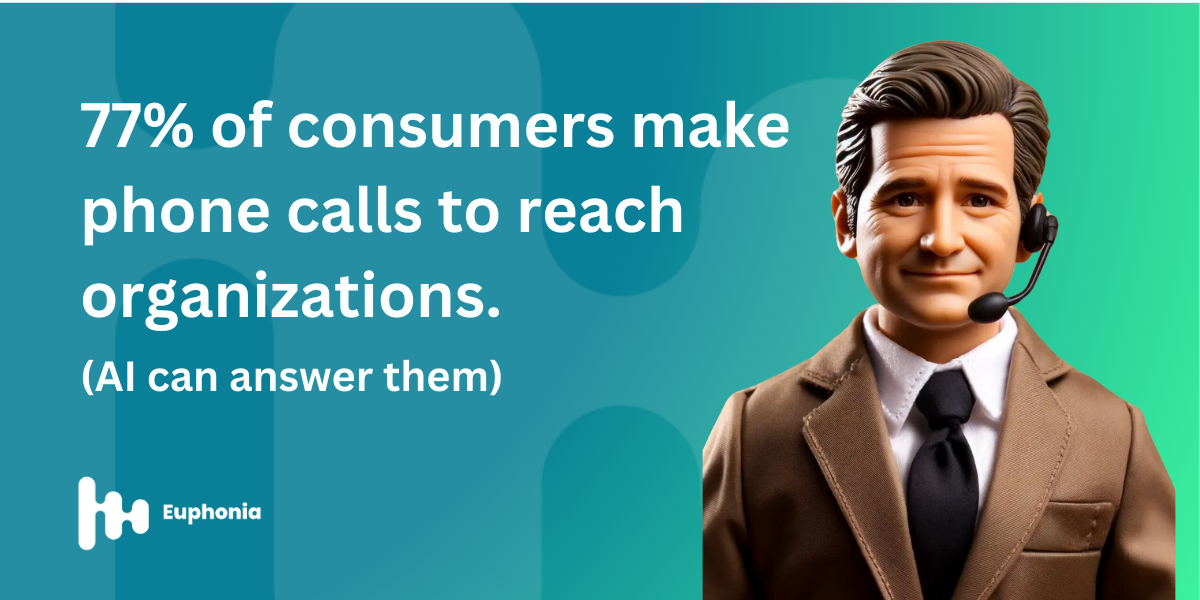Welcome To Your Sales Team of Tomorrow
Close your eyes and picture a room humming with energy—hundreds of phone lines lit up, but instead of frantic SDRs racing through scripts, you see a...

The market for virtual receptionist services has been evolving rapidly over the past decade, driven by the increasing need for businesses to provide seamless customer service while managing operational costs. Traditional human-based virtual receptionist services have been the go-to solution for many companies, offering a way to handle calls professionally without the expense of an in-house receptionist. However, as technology advances, a new era of AI virtual receptionists is emerging, promising to revolutionize the industry with their efficiency, cost-effectiveness, and enhanced user experience.
A virtual receptionist is a service that manages incoming calls, messages, and appointments for a business remotely. Unlike an in-house receptionist, a virtual receptionist can operate from anywhere, providing the same professional service without the need for physical presence. These services typically include answering calls, routing them to the appropriate person or department, taking messages, scheduling appointments, and sometimes even handling customer inquiries.
The virtual receptionist market is currently dominated by several key players, each offering a range of services that cater to various business needs. The top three vendors in this space are Ruby Receptionists, Smith.ai, and Abby Connect. These companies have established themselves as leaders by providing high-quality services, but their offerings come at a premium cost.
These traditional vendors, while excellent in their service delivery, present a high cost barrier that can be challenging for many businesses. This is where AI virtual receptionists come into play, offering a compelling alternative that combines affordability with advanced capabilities.
AI virtual receptionists represent a significant leap forward in the receptionist services market. Leveraging advanced natural language processing (NLP) and machine learning algorithms, these AI-driven solutions can handle a wide array of tasks traditionally managed by human receptionists, often with greater efficiency and at a fraction of the cost.
One of the most significant advantages of AI virtual receptionists is their ease of implementation. Unlike human-based services, which require training and onboarding, AI receptionists can be set up quickly and begin handling calls almost immediately. Many AI receptionist platforms offer user-friendly interfaces that allow businesses to customize responses, set call routing rules, and integrate with existing systems with minimal effort.
The cost savings offered by AI virtual receptionists are substantial. By eliminating the need for human operators, businesses can reduce their monthly expenses dramatically. AI receptionists typically operate on a subscription model with fees based on usage, making it an affordable option for businesses of all sizes. This cost-effectiveness is especially beneficial for small businesses and startups that need to manage their budgets carefully.
Interactive Voice Response (IVR) systems have long been used to handle incoming calls, but they often frustrate customers with their rigid menus and lack of personalization. AI virtual receptionists, on the other hand, provide a much more natural and engaging user experience. They can understand and respond to natural language queries, making interactions smoother and more intuitive. This improved user experience can lead to higher customer satisfaction and retention.
Yes, a receptionist can be replaced with AI, and in many cases, AI can provide a superior experience. AI virtual receptionists offer several advantages over traditional human-based services. They are available 24/7, ensuring that no call goes unanswered, even outside of regular business hours. They can handle multiple calls simultaneously without any drop in quality, something human receptionists can struggle with during peak times. Additionally, AI receptionists are not prone to human errors and inconsistencies that can sometimes occur with live operators.
The virtual receptionist market is undergoing a significant transformation as AI technology continues to advance. While traditional human-based services from vendors like Ruby Receptionists, Smith.ai, and Abby Connect offer high-quality solutions, their cost can be a major drawback. AI virtual receptionists provide a compelling alternative, offering ease of implementation, lower costs, and an improved user experience compared to both IVR systems and traditional receptionist services. As businesses increasingly seek ways to enhance efficiency and reduce expenses, AI virtual receptionists are poised to become the new standard in customer service.
Embracing this technology can help businesses stay ahead of the curve, ensuring they provide top-notch customer service while keeping costs in check. The future of receptionist services is here, and it is powered by AI.
Try a Virtual Receptionist for free from Euphonia AI

Close your eyes and picture a room humming with energy—hundreds of phone lines lit up, but instead of frantic SDRs racing through scripts, you see a...

If your phones still greet customers with crappy auto attendants (press 1 for sales, 2 for blah blah blah) hold music and voicemail boxes, you’re not...

When Mike, John and I got together to discuss working on Voice AI, we began with a question: